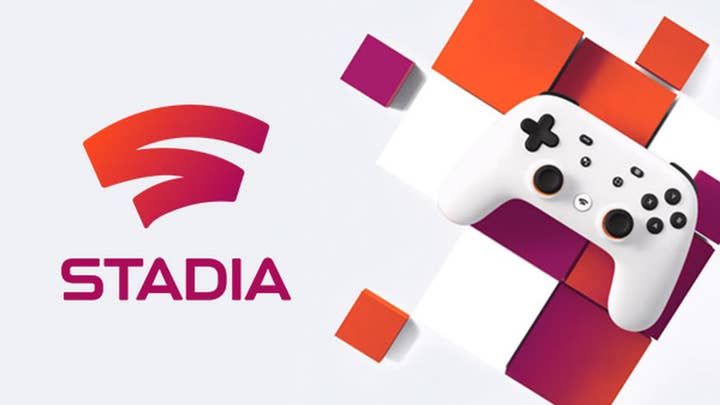After Stadia, is the future still bright for cloud streaming? | Opinion
Proponents have insisted that cloud streaming will replace consoles and PCs – but with the shutdown of Stadia, this future feels less wanted and more distant than ever
After being predicted so widely and for so long, the end, when it finally came, was anti-climactic. Google lost patience with Stadia, just as most people had expected it to from the outset.
Establishing a foothold in the games business takes far more money, perseverance, and time than anyone ever expects – just ask Microsoft – and Google may have plenty of the former, but it’s rarely credited with being good at maintaining focus long-term in the face of adversity.
Stadia wasn’t an instant hit; Google’s attention drifted, and eventually, with one swift pivot, Stadia just wasn’t on the roadmap any more at all.
The shutdown of a service like this is a peculiar thing. When a platform holder loses confidence in a console and ceases to support it – think Nintendo with the Wii U, or Sega with the Dreamcast – the installed base doesn’t go away; games are still sold, and players still enjoy the ones they own. Stadia, though, will simply evaporate on January 18th next year. The servers will disappear, and with them will go the games, the interface, everything. Unless Google releases a firmware update to allow them to function as regular PC peripherals, even the Stadia controllers will effectively be bricked by the shutdown.
Despite Google’s efforts to make everyone involved whole financially, this is about as badly as things could have gone for the first high-profile attempt to launch a game streaming service
If you’re a company doing any kind of business around the game streaming space, that situation should make you deeply uncomfortable – because in many senses Stadia was the first really high profile throw of the dice for the technology that we’ve been assured, with near-religious fervour, will inevitably come to replace consoles and their ilk.
There’s a fair bit of money, and more than a few reputations, riding on the notion that cloud streaming is the industry’s future – and in that context, perhaps the most consequential thing about Stadia’s demise is the sour taste it’s just given to consumers and developers alike of the downside of the whole streaming paradigm.
To Google’s credit, it’s handling the consumer side of things pretty much as well as anyone could have asked for – going above and beyond, in fact, by offering up front to refund all purchases of Stadia hardware or games. That should cushion the blow quite significantly, since consumers won’t end up out of pocket, at least – although nothing will quite take the sting out of the realisation that the very nature of cloud streaming means that even a service run by one of the biggest and richest corporations on the planet can entirely disappear, bricking its associated hardware and taking all your games with it.
Consumers starting to get antsy about the notion of ownership has been a slowly developing theme in recent years, and this shutdown will be another firm push behind that shift in attitudes. How relevant that ends up being is another question entirely.

It’s not unfair to speculate that Google’s free and easy willingness to refund every Stadia purchase implies that there weren’t very many Stadia purchases to begin with, so relatively few consumers are being impacted by the shutdown. The numbers were, at least, low enough that Google is willing to give back the money and write the whole thing off as a failed experiment; an expensive decision, no doubt, but had Stadia been even moderately successful, that cost would be prohibitive.
Whatever consumers feel, though, doesn’t compare to the sting being felt by developers who had partnered with Google to create Stadia titles – many of whom, it seems, found out about the shutdown through news websites or social media, as they were not given any advance notice of the decision.
Here, too, Google will be writing some cheques to cushion the blow – the company appears to have been underwriting development of various Stadia exclusives, and those bills will still be paid. For smaller studios, though, the opportunity cost of spending so much time and effort on games for a platform that’s going to simply disappear in three months is immense, even if the direct financial costs are being compensated – and even for larger studios and publishers, Stadia’s shutdown creates various headaches in terms of both wasted efforts and the need to find ways to keep consumers happy when their access to paid-for games (albeit refunded) evaporates in January.
Despite Google’s efforts to make everyone involved whole financially, this is about as badly as things could have gone for the first high-profile attempt to launch a game streaming service.
With both consumers and developers feeling wary about the whole concept, the time horizon for this "inevitable" technological shift feels like it just got pushed out quite a few more years
That the technology largely worked is a silver lining: it could even be pretty impressive at times, although even under ideal network conditions it remained very clearly a lower-quality experience than playing the game on local hardware, and in poor network conditions it became unusable, all of which highlighted just how technologically challenging game streaming is compared to the relatively simple task of streaming video.
The cloud that’s picked out in that silver lining, though, is a dark one. Beyond the simple fact of the service’s failure, Stadia picked up a few negative connotations on the way – most notably the perception of its initial business model, which was widely criticised for being a worst-of-both-worlds mixture of subscription payments and premium game purchases. Google eventually overhauled that model, but the damage to perception was already done – few consumers even seem to be aware of the change, with the initial flawed business model being cited disapprovingly in many comments about the service shutting down.
Stadia’s lasting legacy, aside from an even deeper wariness about trusting Google’s commitment to any new market sector it attempts to enter, will therefore be felt most clearly by the next company to push a cloud streaming service.

Whether that’s a fresh push by one of the remaining players in this market or a new entrant entirely, the uphill struggle they will face will be the same; the "inevitability" of cloud streaming as the future of the industry has been dealt a serious blow, and consumer confidence in the concept itself will need to be carefully and painstakingly rebuilt before anyone can take a proper stab at reviving the Stadia concept.
It's perhaps not a coincidence that the cloud streaming space doesn’t actually seem all that interested in replicating Stadia’s grand experiment right now. A number of major companies are pursuing streaming technology and infrastructure, but on the consumer-facing side, they’re largely veering away from the notion that cloud streaming is a service in and of itself. Both Sony and Microsoft now position their streaming offerings as one component of a broader game subscription service – suggesting that cloud streaming is just one extra way to play, something that slots into certain gaps in a more expansive offering with wider consumer appeal.
There’s a pendulum swing we’ve seen a couple of times with cloud streaming, from insisting that it’s the inevitable future that will replace consoles and powerful PCs on one side, to positioning it as a side dish that’s good for things like demos or gaming away from home on the other side of the swing.
The failure of Stadia has pushed the pendulum towards the latter end, at least for now. It will likely swing back again in future, when other companies will no doubt try to push forward with the streaming-centric approach Stadia embodied. With both consumers and developers likely feeling wary about the whole concept, however, the time horizon for this "inevitable" technological shift feels like it just got pushed out quite a few more years.

